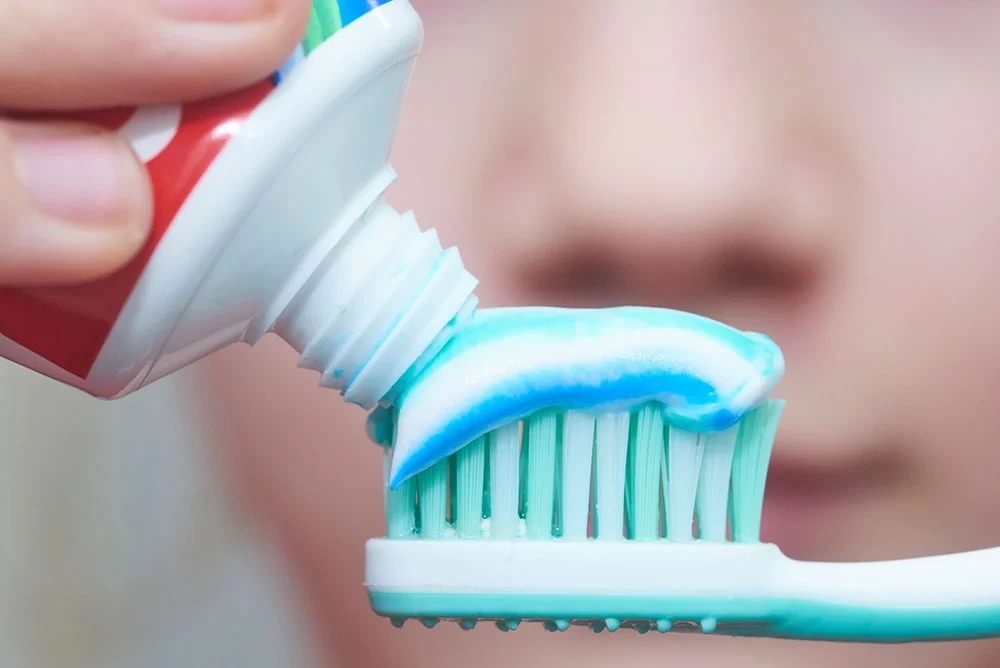
How to Choose the Best Toothpaste for Sensitive Teeth
If you’ve ever experienced the sharp, sudden pain of sensitive teeth, you know just how uncomfortable and frustrating it can be. I can personally relate to that feeling, as I’ve struggled with sensitive teeth for years. Over time, I’ve learned the importance of choosing the right toothpaste to help alleviate the discomfort and protect my teeth. In this article, I’ll share with you everything I’ve learned about finding the best toothpaste for sensitive teeth, along with my personal tips and recommendations.
1. Understanding Tooth Sensitivity
Before diving into the details of choosing the best toothpaste, it’s important to understand why teeth become sensitive in the first place. Sensitivity occurs when the protective layer of enamel on your teeth wears down, exposing the underlying layer called the dentin. This can cause discomfort when eating or drinking hot, cold, sweet, or acidic foods.
For me, I first noticed sensitivity after consuming something cold, like ice cream. That sharp pain was a wake-up call, and I realized I needed to address the issue before it got worse. Thankfully, using the right toothpaste made a significant difference in reducing my discomfort.
2. What to Look for in Toothpaste for Sensitive Teeth
Choosing the right toothpaste is crucial when it comes to managing tooth sensitivity. When I was first dealing with this problem, I had no idea where to start. Here are some key features I now look for in a toothpaste that works well for sensitive teeth:
Fluoride
Fluoride is essential for strengthening enamel and preventing further decay. I make sure to choose a toothpaste that contains fluoride, as it helps protect my teeth from cavities and remineralizes weakened areas. Fluoride toothpaste is a must-have for maintaining healthy teeth, especially when dealing with sensitivity.
Desensitizing Agents
Desensitizing agents, like potassium nitrate or strontium chloride, are the star ingredients in most toothpaste designed for sensitive teeth. These compounds help block the pathways to the nerves in your teeth, reducing sensitivity over time. I personally found that using a toothpaste with potassium nitrate made a noticeable difference in how often I experienced sharp pain.
Low Abrasiveness
When you have sensitive teeth, it’s important to choose a toothpaste that’s gentle on your enamel. Toothpaste that’s too abrasive can wear down enamel further, increasing sensitivity. I always look for a toothpaste that’s labeled as “low abrasion” or “gentle,” which ensures it won’t cause further damage to my teeth.
Non-Acidic Formulas
Some toothpaste formulas contain acidic ingredients that may worsen tooth sensitivity. I make sure to avoid these kinds of toothpaste, as they can irritate my already sensitive teeth. Instead, I opt for toothpaste that is pH-balanced and formulated to be gentle on sensitive teeth.
3. Personal Experience: My Journey to Finding the Right Toothpaste
When I first started looking for a toothpaste for my sensitive teeth, I was overwhelmed by the number of options available. Each brand promised to alleviate sensitivity, but many of them didn’t live up to their claims. I decided to test a few popular brands, and over time, I discovered what worked best for me.
My first trial was with a well-known toothpaste for sensitive teeth that contained potassium nitrate. After using it for a couple of weeks, I started to notice a reduction in the sharp pain I usually felt when drinking something cold. However, the toothpaste was a bit too abrasive, and I still experienced some discomfort when brushing. So, I switched to a different brand that was advertised as having a gentler formula.
That’s when I found the perfect balance. The new toothpaste contained both fluoride and potassium nitrate but was also labeled as “gentle” and “non-abrasive.” The results were immediate. I could brush my teeth without experiencing the pain I once did, and my teeth felt cleaner and stronger overall. This experience really highlighted the importance of finding the right combination of ingredients.
4. Top Brands to Consider for Sensitive Teeth
If you’re struggling to find the right toothpaste for sensitive teeth, here are a few brands that have worked well for me:
- Sensodyne: Sensodyne is one of the most well-known toothpaste brands for sensitive teeth. It contains potassium nitrate, fluoride, and other ingredients that help reduce sensitivity over time. I’ve used their toothpaste for years and find it very effective in managing discomfort.
- Crest Pro-Health Sensitive: Another great option is Crest Pro-Health Sensitive, which combines fluoride with a gentle formula designed to protect against sensitivity. This toothpaste also helps prevent cavities and gingivitis.
- Colgate Sensitive Pro-Relief: Colgate’s Sensitive Pro-Relief toothpaste is formulated with a unique compound that provides immediate relief from tooth sensitivity. I’ve found that it works well, especially when I’m experiencing sharp pain after consuming cold or acidic foods.
5. Other Tips for Managing Sensitive Teeth
Choosing the right toothpaste is just one part of managing sensitive teeth. I also made a few lifestyle changes to help alleviate my sensitivity:
- Use a soft-bristled toothbrush: A hard toothbrush can wear down enamel and irritate sensitive gums. I always use a toothbrush with soft bristles to ensure I’m not causing further damage to my teeth while brushing.
- Avoid acidic foods and drinks: Acidic foods like citrus fruits, soda, and vinegar can increase tooth sensitivity. I try to limit these in my diet, and when I do consume them, I rinse my mouth with water afterward.
- Don’t brush too hard: Brushing too aggressively can worsen sensitivity. I always make sure to brush gently and for the recommended two minutes, using small circular motions.
By following these tips and using the right toothpaste, I’ve been able to manage my sensitive teeth effectively. While there’s no one-size-fits-all solution, I hope my experience helps you find the best toothpaste for your needs. With the right care and the right product, you can say goodbye to the discomfort of sensitive teeth.







 Smile Obsession Dental4.0 (792 review)
Smile Obsession Dental4.0 (792 review) Dr. Krupa Parikh, DDS0.0 (0 review)
Dr. Krupa Parikh, DDS0.0 (0 review) Blum & Tinsley Dental Clinic | Norman5.0 (583 review)
Blum & Tinsley Dental Clinic | Norman5.0 (583 review) Warren C. Baine, DMD5.0 (36 review)
Warren C. Baine, DMD5.0 (36 review) Levin Marc DMD5.0 (3 review)
Levin Marc DMD5.0 (3 review) Charm Pediatric Dentistry, LLC4.0 (74 review)
Charm Pediatric Dentistry, LLC4.0 (74 review) The Importance of Oral Health Education During Pregnancy for a Healthy Pregnancy
The Importance of Oral Health Education During Pregnancy for a Healthy Pregnancy Best Tips for Brushing Your Teeth Properly for Healthy Gums: Essential Techniques for Oral Health
Best Tips for Brushing Your Teeth Properly for Healthy Gums: Essential Techniques for Oral Health Why Skipping Dental Checkups Can Lead to Bigger Oral Health Problems
Why Skipping Dental Checkups Can Lead to Bigger Oral Health Problems Advantages of Porcelain Dental Restorations
Advantages of Porcelain Dental Restorations How Can Diabetes Cause Tooth and Gum Problems? Preventing and Managing Oral Health Issues
How Can Diabetes Cause Tooth and Gum Problems? Preventing and Managing Oral Health Issues Healthy Habits for Promoting Good Oral Health and Hygiene: Tips for a Healthy Smile
Healthy Habits for Promoting Good Oral Health and Hygiene: Tips for a Healthy Smile